"Cherishing Little Steps - A Haven for Baby and Family Journeys"
Best Foods for Postpartum Healing
Did you know that incorporating specific foods into your postpartum diet can significantly impact your healing process? From promoting tissue repair to reducing inflammation and boosting energy levels, choosing the right foods is crucial for your recovery. But what exactly are these powerhouse foods that can aid in your postpartum healing journey? Let's explore the top recommendations that can help you navigate this important phase with nourishment and support.
Leafy Greens
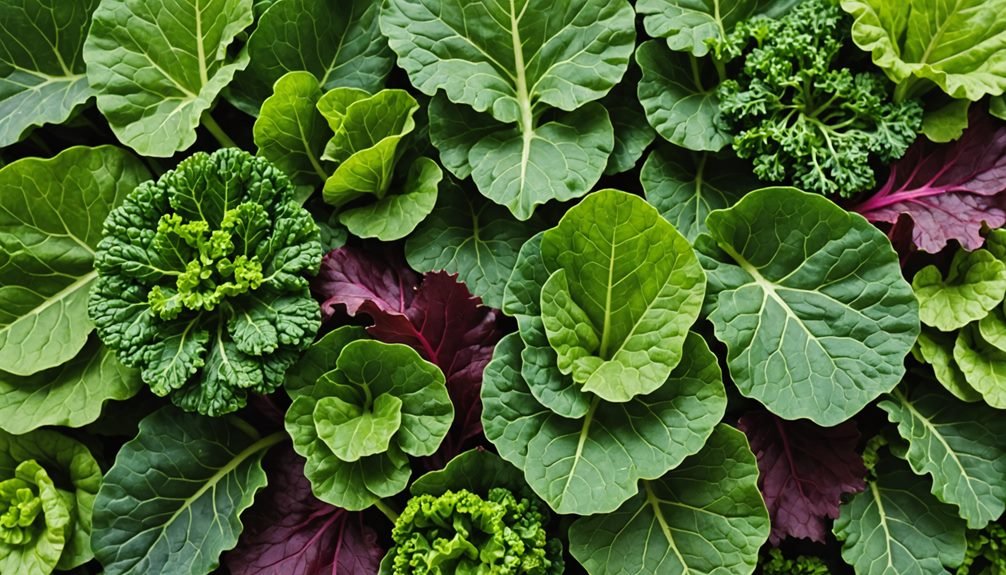
When it comes to postpartum healing, incorporating leafy greens into your diet can be incredibly beneficial. Leafy greens like spinach, kale, and Swiss chard are nutrient powerhouses that can aid in your recovery process. These greens are rich in vitamins A, C, and K, as well as minerals like iron and calcium, which are essential for postpartum healing.
One delicious way to enjoy leafy greens is by creating nutrient-packed salads. Combine a variety of greens with colorful vegetables, nuts, seeds, and a light vinaigrette for a satisfying and healing meal.
Another option is to blend leafy greens into smoothie bowls. Simply mix spinach or kale with fruits like berries, bananas, and a splash of almond milk for a refreshing and nourishing postpartum snack.
Incorporating leafy greens into your diet postpartum can provide your body with the essential nutrients it needs to heal and recover. So, don't forget to load up on these vibrant greens to support your well-being during this crucial time.
Lean Proteins
To support your postpartum healing, incorporating lean proteins into your diet is essential. Lean proteins are crucial for tissue repair, muscle recovery, and overall well-being during this delicate period. Including sources like chicken, fish, lentils, and tofu can provide you with the necessary nutrients to aid in your recovery.
Here are some protein sources and their healing benefits:
| Protein Sources | Healing Benefits |
|---|---|
| Chicken | Rich in protein and essential amino acids for tissue repair. |
| Fish | Omega-3 fatty acids reduce inflammation and support brain health. |
| Lentils | High in iron for energy levels and folate for cell regeneration. |
Healthy Fats
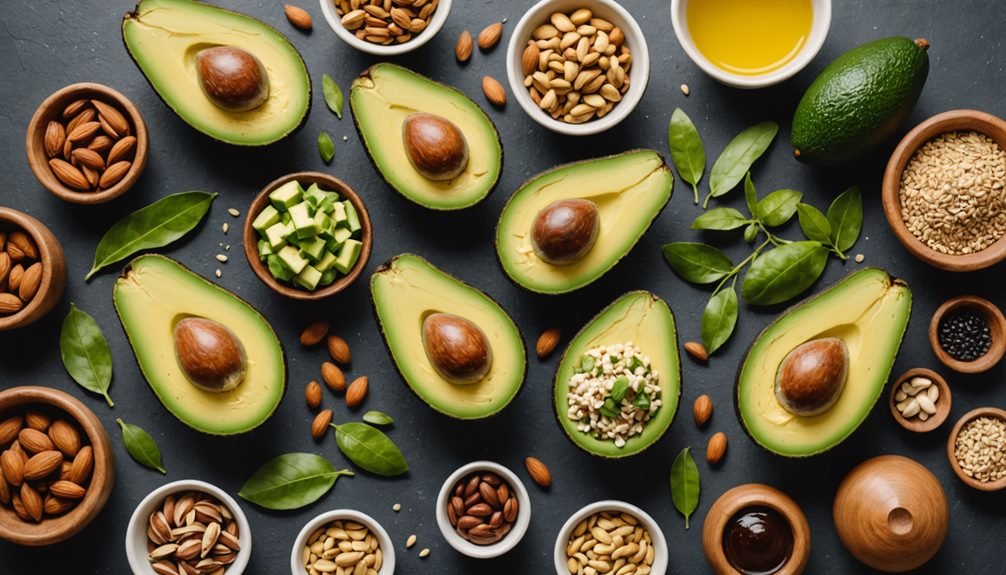
Including healthy fats in your postpartum diet is vital for supporting various aspects of your recovery. Avocado is a fantastic source of healthy fats, providing monounsaturated fats that are beneficial for heart health and inflammation reduction. These healthy fats can aid in hormone regulation and support your body's healing processes after childbirth.
Omega-3 fatty acids are another essential component of a postpartum diet. Sources like salmon, chia seeds, and walnuts offer omega-3 fatty acids that can help reduce postpartum depression symptoms and support brain function.
Whole Grains
Curious about how whole grains can benefit your postpartum recovery? Whole grains are a powerhouse of nutrients that can support your healing journey. Here's why you should include them in your diet:
- Fiber sources: Whole grains like brown rice, quinoa, and oats are rich in fiber, which aids digestion and prevents constipation—a common postpartum woe. Fiber also helps you feel full longer, supporting healthy weight management during this crucial period.
- Energy boosters: After childbirth, your body needs all the energy it can get. Whole grains provide a steady release of energy, preventing blood sugar spikes and crashes. This sustained energy can help combat fatigue and keep you going throughout the day, especially when you have a newborn to care for.
- Nutrient-packed: Whole grains are packed with essential nutrients like B vitamins, iron, and magnesium, which are vital for postpartum recovery. These nutrients support tissue repair, boost your energy levels, and help combat postpartum blues.
Colorful Berries
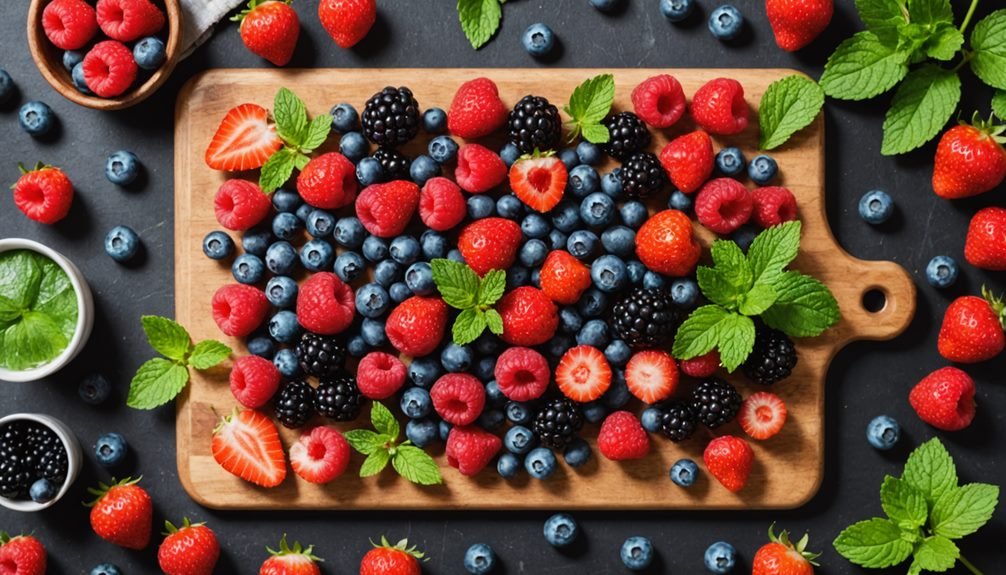
Colorful berries can be a delightful addition to your postpartum diet, offering a burst of flavor and a plethora of health benefits. Berries like blueberries, strawberries, and raspberries are packed with antioxidants, which help reduce inflammation and support your body's healing process after childbirth. These antioxidants also help combat free radicals, promoting overall well-being during this crucial time.
Incorporating colorful berries into your diet can be easy and delicious. One popular way is by adding them to smoothies.
A simple recipe could include blending a handful of mixed berries with Greek yogurt, a splash of almond milk, and a touch of honey for sweetness. This smoothie not only tastes great but also provides a nutritious boost to aid in your postpartum recovery.
Remember to wash your berries thoroughly before consuming them to remove any pesticides or dirt. Whether enjoyed on their own, mixed into yogurt, or blended into smoothies, colorful berries can be a sweet and healthy addition to your postpartum healing journey.
Nuts and Seeds
Rich in essential nutrients and beneficial fats, nuts and seeds can be valuable additions to your postpartum diet. These small but mighty foods offer a range of benefits that can aid in your postpartum healing journey. Here's why they're great for you:
- Hormone Balancing: Nuts and seeds are rich in essential fatty acids like omega-3 and omega-6, which are crucial for hormone production and balance, helping your body recover and adjust after childbirth.
- Energy Boosting: Packed with protein, fiber, and healthy fats, nuts and seeds provide a sustained energy release, helping you combat fatigue and keep up with the demands of new motherhood.
- Nutrient-Dense: Nuts and seeds are loaded with vitamins, minerals, and antioxidants that support your overall health and wellbeing during this crucial postpartum period.
Including a variety of nuts and seeds in your meals or snacks can't only enhance your nutritional intake but also contribute to a quicker and smoother postpartum recovery.
Citrus Fruits
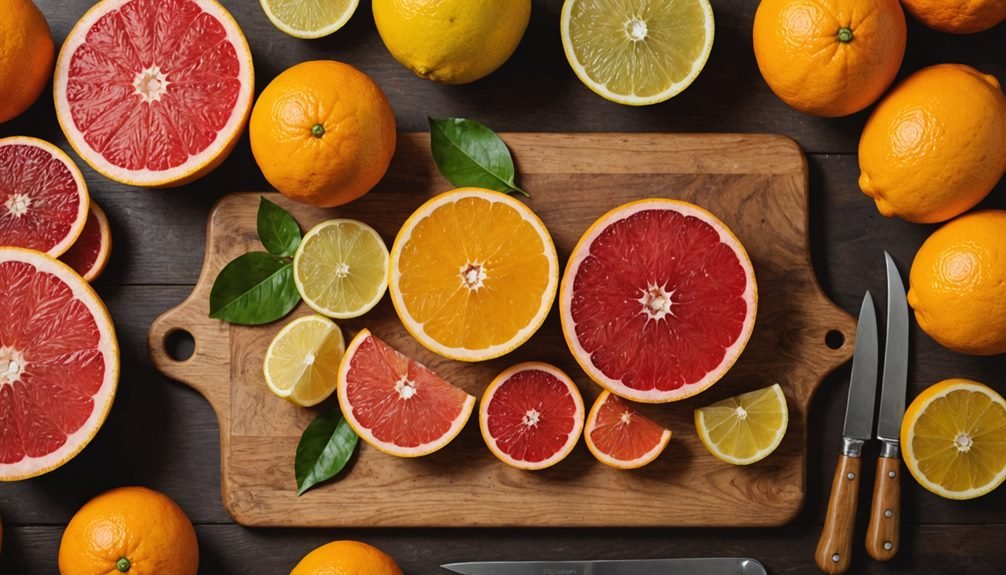
Nuts and seeds have been highlighted for their significant benefits in aiding postpartum healing. Now, let's talk about citrus fruits.
Citrus fruits are packed with Vitamin C, a crucial nutrient for boosting your immune system and promoting healing after childbirth. Oranges, grapefruits, lemons, and limes aren't only delicious but also provide essential antioxidants that can help your body recover.
In addition to their Vitamin C benefits, citrus fruits are also a great way to stay hydrated. The high water content in these fruits can contribute to your daily fluid intake, supporting your overall well-being during the postpartum period. Slicing up some citrus fruits to snack on or adding them to your water can be a refreshing and hydrating choice.
Bone Broth
For postpartum healing, bone broth is a nourishing option to consider. Bone broth offers a variety of nutrient-rich benefits and healing properties that can aid in your postpartum recovery journey. Here's why bone broth can be a valuable addition to your postpartum diet:
- Collagen Boost: Bone broth is rich in collagen, a protein that supports skin elasticity and tissue repair, which can be particularly beneficial during the postpartum period when your body is recovering from childbirth.
- Gut Healing: The gelatin in bone broth can help repair and support the lining of the gut, which may have been impacted during pregnancy and childbirth, promoting better digestion and nutrient absorption.
- Hydration and Nourishment: Bone broth is hydrating and provides essential minerals and vitamins, such as calcium, magnesium, and phosphorus, that are important for overall healing and recovery.
Incorporating bone broth into your postpartum diet can be a comforting and nutritious way to support your body's healing process.
Fermented Foods
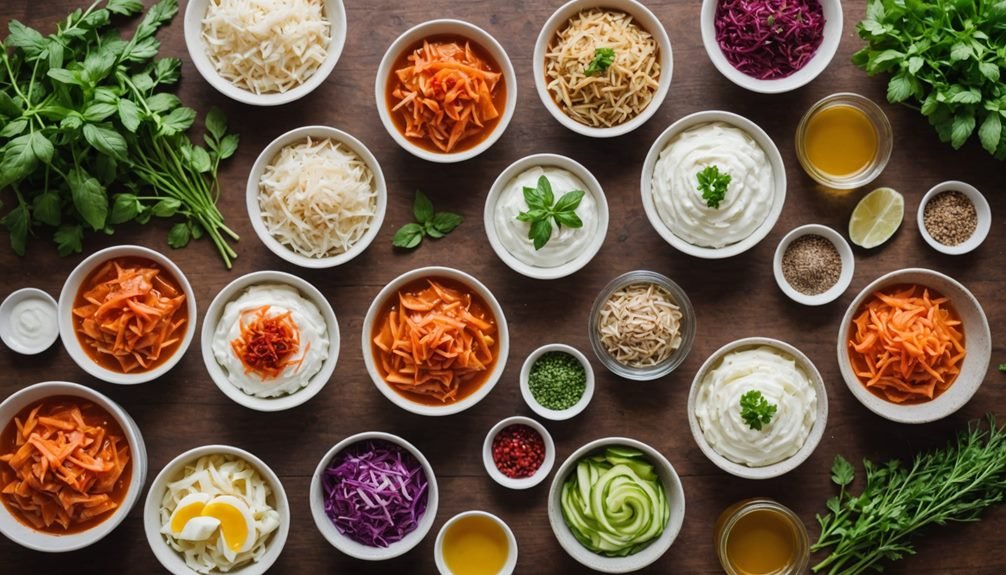
After exploring the benefits of bone broth for postpartum healing, you may find that incorporating fermented foods into your diet can further aid in your recovery journey. Fermented foods are rich in probiotics, which are beneficial bacteria that support gut health. During childbirth, the balance of gut bacteria can be disrupted due to stress and medications, making it essential to replenish it postpartum.
Probiotic benefits from fermented foods can help improve digestion, boost the immune system, and reduce inflammation. Examples of fermented foods include yogurt, kefir, sauerkraut, kimchi, and miso. These foods not only provide probiotics but also offer essential nutrients like vitamins, minerals, and antioxidants that are beneficial for postpartum recovery.
Incorporating fermented foods into your diet can promote a healthy gut microbiome, aiding in the restoration of your body postpartum. Adding a variety of fermented foods to your meals can enhance your overall well-being and support your body in healing after childbirth.
Herbal Teas
Herbal teas have long been valued for their therapeutic properties and potential benefits for postpartum recovery. These soothing beverages can offer a gentle way to support your body during the healing process. Here's how you can make the most of herbal teas for postpartum care:
- Herbal Tea Benefits: Choose herbal teas that are known for their healing properties, such as chamomile for relaxation, peppermint for digestion, and red raspberry leaf for uterine toning.
- Combining Herbs: Consider combining different herbs to create a blend that addresses multiple postpartum needs.
For example, mixing nettle leaf for iron levels, oat straw for stress relief, and lemon balm for mood support can create a well-rounded postpartum tea blend.
– Consult a Herbalist: If you're unsure about which herbs to use or how to combine them safely, consider consulting a herbalist who can provide personalized recommendations based on your specific postpartum needs.
Frequently Asked Questions
Can I Consume Spicy Foods During Postpartum Healing?
You can enjoy spicy foods during postpartum healing if they don't cause discomfort. Spicy food benefits include boosting metabolism and aiding digestion. However, if you prefer to avoid them, consider alternatives like flavorful herbs and mild spices.
Listen to your body and choose foods that make you feel good. Remember, balance is key in your postpartum diet to support your healing and well-being.
Are There Any Foods to Avoid for Postpartum Recovery?
When it comes to postpartum recovery, you should be mindful of nutritional restrictions and dietary considerations. Some foods to avoid include those high in added sugars, processed foods, and caffeine, as they may hinder your healing process. Opt for whole, nutrient-dense foods instead to support your body's recovery and energy levels.
Prioritizing a balanced diet with plenty of fruits, vegetables, lean proteins, and whole grains can aid in your postpartum healing journey.
How Can I Incorporate These Foods Into My Meals Easily?
To easily incorporate these healing foods into your meals, try quick recipes like smoothies with spinach and berries or chia seed pudding with almonds.
Meal prep ideas can save time, making batch cooking of lentil soups or quinoa salads a breeze.
Can I Prepare and Freeze Meals With These Ingredients in Advance?
Yes, you can absolutely prepare and freeze meals with these ingredients in advance. It's a great way to ensure you have nutritious snacks and meals ready to go when you need them most.
Consider meal delivery services or batch cooking on weekends to make the process easier. This way, you can focus on taking care of yourself and your little one without worrying about meal preparation during those busy postpartum days.
Are There Any Specific Foods That Can Help Boost Milk Supply?
You can naturally boost milk supply by incorporating lactation cookies or power smoothies into your diet.
Lactation cookies are packed with ingredients like oats, brewer's yeast, and flaxseed known to support milk production.
Power smoothies made with ingredients like spinach, bananas, and almond butter can provide essential nutrients to help increase lactation.
Including these foods in your daily meals can assist in enhancing your milk supply for your little one.
Conclusion
In conclusion, incorporating nutrient-rich foods like leafy greens, lean proteins, healthy fats, whole grains, colorful berries, citrus fruits, bone broth, fermented foods, and herbal teas into your postpartum diet can significantly aid in your healing and recovery journey. These foods provide essential nutrients, antioxidants, and anti-inflammatory properties to support your overall wellness. Remember, nourishing your body with these healing foods will help you feel stronger, more energized, and ready to tackle the demands of motherhood.




